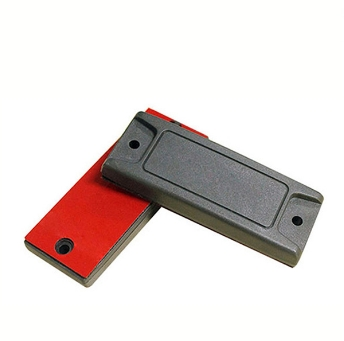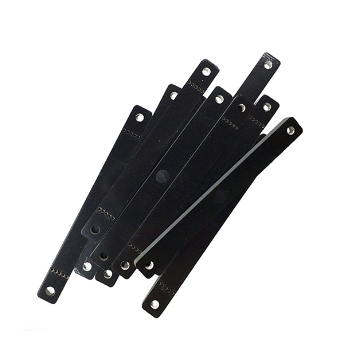The Internet of Things (IoT) industry, being a major focus of national development in recent years, has been widely applied across various sectors. Currently, in industries utilizing IoT applications such as warehouse management, logistics sorting, asset management, and intelligent inspections, more than 90% of managed items lack self-recognition functionality. Electronic tags, as typical representatives of automatic identification technology, have vast prospects for development and can create significant value for the IoT industry.
However, in certain specific scenarios such as metal usage environments and metal product identification, standard electronic tag signals are often blocked or interfered with, rendering data collection impossible and even disrupting normal operations. It is in response to these environments that anti-metal electronic tags have come into existence.

ABS anti-metal tags are made using high-temperature-resistant industrial ABS plastic, metal shielding materials, epoxy resin encapsulation, and ultrasonic welding. They possess features such as sun protection, waterproofing, and high-temperature resistance. These tags find wide applications in logistics management, luggage, pallets, containers, shelves, equipment, and fixed assets management.

PCB anti-metal tags can be directly pasted onto metal surfaces. They are suitable for installation on car license plates and are also applicable in outdoor power equipment inspections, tower pole inspections, elevator inspections, pressure vessel steel cylinders, various home electrical devices' product tracking, asset management, logistics management, and automotive parts process management.

Flexible UHF tags have a certain degree of flexibility and can be printed. They exhibit excellent anti-metal properties on metal surfaces, have good performance, directional characteristics, and long reading distances. These tags are suitable for attaching to curved surface assets like metal cylinders and can be applied in RFID asset management, cylinder tracking, traffic control, logistics management, hazardous material management, and other areas.
In conclusion, when working in metal environments, finding suitable anti-metal tags is a prerequisite for ensuring the effectiveness of RFID system applications.